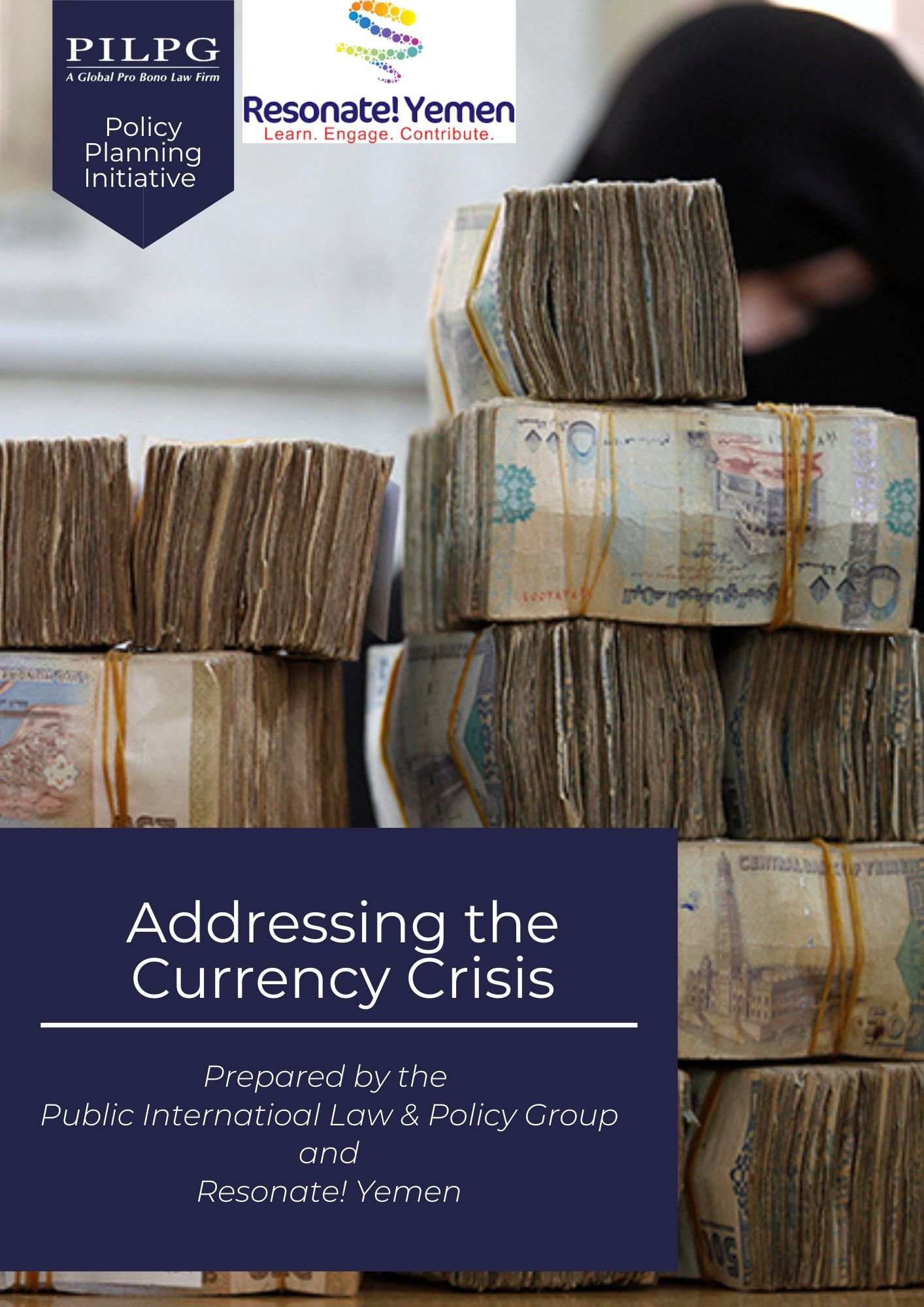Policy Planning White Paper:
Addressing the Currency Crisis
Statement of Purpose
The economic and currency crisis in Yemen is one of the leading causes of humanitarian suffering in Yemen. It is characterized by a severe devaluation of Yemen’s currency on the international marketplace and with drastic wartime disruptions in trade, has led to extreme inflation and a rise in the cost of basic goods for civilians. When combined with the division of the Central Bank, the crisis is even more impactful on those in ROYG-controlled territories. This white paper looks at the causes and effects of this crisis, and provides recommendations to mitigate the impact of the crisis on Yemeni society.
Executive Summary
Yemen’s economic crisis is marked by rampant inflation and a lack of government control over economic regulation, public servant salaries, and the provision of public services. The riyal (Yemen’s currency) is experiencing sharp and consistent devaluation as the war continues, and its citizens are feeling the harsh impact. The civil war led to both a territorial split between the internationally recognized government of Yemen and Ansar Allah-controlled territories to the North, as well as a split in the control over the Central Bank. This split in the Central Bank is a major, if not the main, contributor to Yemen’s currency crisis. The division of the bank created two parallel economies within Yemen, deeply fracturing an already divided state. While this paper will address the general causes, effects, and public perception of the economic crisis in Yemen, it cannot provide a technical analysis of how to solve the currency crisis. This paper offers policy recommendations related to the impact on the public and its potential to influence public support for armed groups and political parties.
About PILPG’s Policy Planning Initiative
PILPG’s Policy Planning Initiative supports the development of long term, strategic policy planning that is crucial to international accountability, global conflict resolution, and the establishment of international peace. The Initiative provides timely and accurate policy planning analysis and work product on pressing and future policy conundrums by leveraging PILPG’s deep network of talent within the international legal and policy communities and experience with its pro bono clients globally. PILPG Policy Planning focuses on advising policymakers, policy shapers, and engaged stakeholders on pressing issues within the arenas of international law, war crimes prosecution, and conflict resolution efforts. This includes identifying and addressing gaps within existing policies, anticipating key conundrums and questions that will riddle future policy decisions, applying lessons learned from comparative state practice, and proactively producing and sharing work product to inform such policies and avoid crisis decision making.
About PILPG
The Public International Law & Policy Group is a global pro bono law firm providing free legal assistance to parties involved in peace negotiations, drafting post-conflict constitutions, and war crimes prosecution/transitional justice. To facilitate the utilization of this legal assistance, PILPG also provides policy planning assistance and training on matters related to conflict resolution.
Since its founding in 1995, PILPG has provided legal assistance to over two dozen peace negotiations, and over two dozen post-conflict constitutions, and has assisted every international and hybrid criminal tribunal, as well as helped to create a number of domestic transitional justice mechanisms. PILPG represents a diverse array of pro bono clients including states, sub-state actors, opposition groups, self-determination movements, civil society, and marginalized actors, including women and youth.


